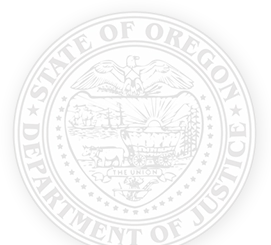Oregon to receive up to $97 million in Purdue Pharma and $329 million in drug distributors/manufacturers cases
Attorney General Ellen Rosenblum today announced a major settlement with Purdue Pharma and the Sackler family that will deliver up to $6 billion nationally for their role in the opioid epidemic. Oregon will receive up to $97 million in the settlement, all of which will be used for opioid treatment and prevention. On Friday, the historic $26 billion opioid agreement against the three largest distributors of opioids (McKesson, AmerisourceBergen and Cardinal Health) and drug manufacturer Johnson & Johnson was also approved, with Oregon and its cities and counties to receive approximately $329 million from the settlement. Oregon was part of the lead group of attorneys general negotiating both settlements.
Oregon’s break-down of the Purdue Pharma settlement includes: $34 million from today’s settlement, $56 million from the original bankruptcy plan, and up to an additional $7 million depending upon the sale of certain assets. Oregon will receive the first settlement payment starting this year.
“Purdue Pharma’s original bankruptcy plan failed to achieve justice for the millions of Americans who have been victims of the Sackler’s greed. This family-owned company profited handsomely for decades while their conduct continued to lead to addiction and death of millions, including thousands of Oregonians,” said Attorney General Rosenblum. “While these tragedies can never be undone, today’s settlement—which still needs court approval—is a vast improvement and results in significant benefit to all the country. Oregon has been at the negotiating table every step of the way, and I am especially grateful to Sr. Assistant Attorney General David Hart who has spent countless hours at the negotiating table—right up to this morning!”
The settlement keeps intact provisions of the Purdue bankruptcy plan that forces the company to be dissolved or sold by 2024 and bans the Sackler family from the opioid business and requires Purdue to publicly disclosure additional records. It also requires the Sackler family to make a statement of regret and allow museums and other institutions to remove the Sackler name from buildings and scholarships. The agreement—and the prior bankruptcy plan—also does not release the Sackler family from potential future criminal liability. The settlement is conditioned upon completion of an ongoing legal process in the federal bankruptcy and appellate courts.
In July, Oregon and eight other Attorneys General appealed to a federal judge to reject Purdue Pharma’s proposed bankruptcy plan, which includes a lifetime legal shield for the company’s owners, the Sackler family. Today’s announcement is the culmination of an intensive court-ordered mediation, which began on January 3. The mediation was extended twice and included dozens of negotiation sessions with nine Attorneys General and their staff, with Judge Shelley C. Chapman serving as mediator.
Purdue settlement highlights include:
- The Sackler family must pay $1 billion above the previous bankruptcy plan, as well as an additional $175 million which was previously conditioned on certain approvals. The final payments are spread over 18 years, with larger payments frontloaded so that State will receive more money, sooner as compared to the previous bankruptcy plan.
- The Sackler family must pay up to an additional $500 million in the event their asset sales reach a specified benchmark
- The Sackler family issues a statement of regret for their role in the opioid epidemic, and to the victims whose lives have been devastated.
- The Sackler family must allow institutions to remove the family name from buildings, scholarships, and fellowships.
- Mediator Judge Shelley C. Chapman urged the Bankruptcy Court to require the Sacklers to participate in a public hearing where victims and their survivors would be given an opportunity to directly address the family.
- Purdue must make public additional documents that have been previously withheld. These include legal advice regarding advocacy before Congress, the promotion, sale, and distribution of Purdue opioids, structure of the Purdue Compliance Department and its monitoring and abuse deterrence systems, and documents regarding recommendations from McKinsey & Company, Razorfish, and Publicis related to the sale and marketing of opioids.
- States reserve their rights to oppose non-consensual, non-debtor releases before the U.S. Supreme Court, should an appeal be heard there.
History of Purdue Pharma Litigation in Oregon:
Oregon and 25 other states in 2007 settled the first multi-state lawsuit with Purdue Pharma. In 2018, Oregon again sued Purdue for violating the 2007 agreement and deceptively marketing OxyContin to Oregon seniors and misrepresenting the risks of the drug.
In May 2019, Oregon became one of the first states to sue the owners of Purdue Pharma, the Sackler family. Attorney General Rosenblum alleged that when it became apparent that Purdue would be crushed under the weight of its opioid liability, Purdue Pharma and eight members of the Sackler family fraudulently transferred billions of dollars from Purdue to accounts under the control of the family. Oregon subsequently sued the Sackler family once again in October 2019, alleging that they were personally responsible for the deceptive and unlawful promotion of OxyContin.
Purdue filed for bankruptcy in September 2019. In 2021, the bankruptcy court approved a Purdue bankruptcy plan that granted a lifetime legal shield to the Sackler family, unlawfully blocking states like Oregon from pursuing claims against the family. The plan required the Sackler family to pay $4.3 billion over nine years to the states, municipalities and plaintiffs that sued the company. In addition to Oregon— California, Connecticut, Delaware, Maryland, Rhode Island, Vermont, Washington, and the District of Columbia appealed the plan.
